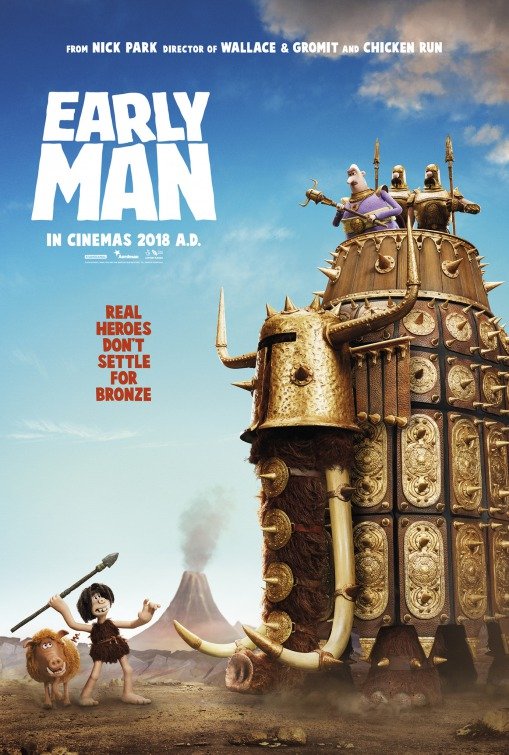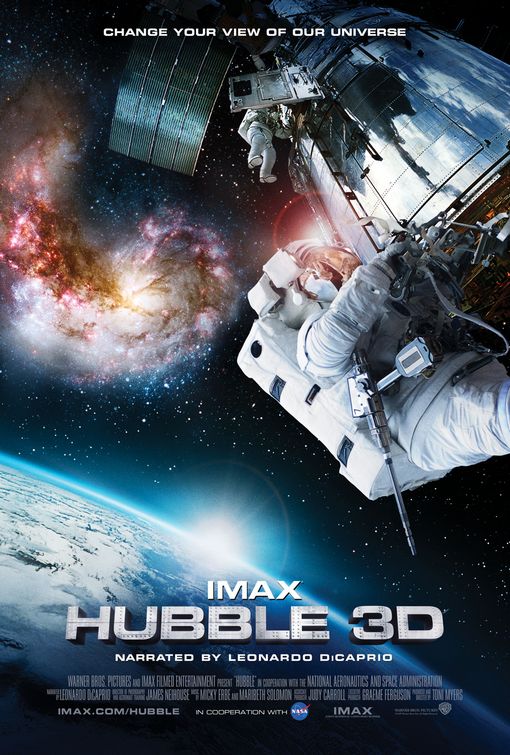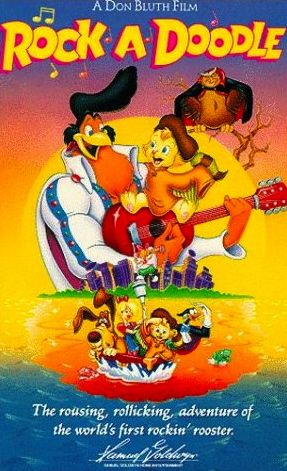Ghosts of Christmas Past:
Behind the Scenes of IRON MAN 3
By Carl Kozlowski, Contributing Writer, with Tom Snyder, Editor
Perhaps no other movie sparked the radical reinvention of superhero flicks into movies that were both entertaining and substantive than 2008’s IRON MAN. Better yet, the story of a billionaire industrialist named Tony Stark who rose to the challenge of creating much-needed advanced weaponry for the US military was expertly played by outspoken Hollywood conservative Robert Downey, Jr. It also was rousingly patriotic and packed with heroic, redemptive messages of good over evil and sacrifice, while also taking surprising satirical potshots at the Left.
While IRON MAN 2 wasn’t quite as entertaining all the way through, it opened strongly with a Senate hearing in which liberal lawmakers tried to criticize Stark, with Downey offering pointedly witty rejoinders that knocked the wind out of numerous PC and anti-war arguments.
Now, IRON MAN 3 is hitting theatres, with Downey back as the title character but with a new writer-director – Shane Black of LETHAL WEAPON fame – in charge.
The switch has creatively reinvigorated the series, while also providing an even stronger feeling of Americana than ever before. That’s because Tony Stark’s Iron Man suit malfunctions while he’s flying to Nashville to investigate a character, and winds up forcing him to crash land outside a small rural town in the Tennessee backwoods.
There, he has to learn to rely on his wits and normal-guy powers again, while taking a young fatherless boy under his wing. Surprisingly, this Hollywood extravaganza treats all the small-town, Red State locals as intelligent human beings rather than demeaning caricatures and is set at Christmas, giving the whole enterprise the feel of a modern-day, science-fiction movie directed by Frank Capra (IT’S A WONDERFUL LIFE).
The cast of IRON MAN 3 teamed up with writer-director Shane Black recently at the Four Seasons Hotel in Beverly Hills to discuss the new movie, which kicks off the summer movie season in grand style this Friday.
MOVIEGUIDE®: Do you give any consideration to what you want children to get out of a movie like IRON MAN 3?
DON CHEADLE: With the events of last week (in Boston), I’ve been asked a lot about are there any sort of allusions between what’s happening in the real world and what’s happening in the film, and are we trying to make a statement? Clearly, this movie was in the can prior to anything that happened last week. As Robert mentioned earlier, the job of this film is to entertain. That’s what we’re hoping to do. But, if we’re lucky enough to, outside of that, have someone’s mind changed about something that’s happening in the world, or some deeper understanding, that’s some ancillary byproduct we couldn’t have anticipated, or I couldn’t have, anyway. We’re really trying to give people the ability to go into a darkened room and have a couple hours of just pure enjoyment. If anything else happens outside of that, that’s an unintended consequence, but one that’s a happy one.
ROBERT DOWNEY, JR.: Sir Ben will find this really interesting to have an entire generation of moviegoing folk but also just kids identifying Sir Ben with this character. Once you have that kind of feedback, you don’t figure that into what you’re doing. Disney acquired Marvel, but Marvel was already mindful of this stuff. When it comes to PG-13 bordering on how did this ever get past the ratings commission, we’re really thoughtful about this stuff. And, in your (Ben’s) character’s transition, there’s something about it that lets the air be taken out of the darkness.
SIR BEN KINGSLEY: Also, it does come from Robert. Whatever the concepts, whatever the scene, there’s always a quest for sincerity, a quest for the genuine, a quest for putting the human dance on the screen. All generations will respond to that. Children do respond to sincerity. Robert is a guiding actor throughout all our experience. You always see where is his sincerity in the scene, where is his heart, and I think that will appeal to children of all ages.
GWYNETH PALTROW: We do live in an unsafe world. I’m grappling with my 7-year-old son now the fact that the world is unsafe. We can’t lie to our children and pretend the world is perfect and everyone’s happy and out to do good. After they saw the movie, I had a conversation with my son about it so I think it’s a good starting point to have a conversation.
Q: Robert, what was the biggest challenge of making number 3? Has the recent Boston terrorism impacted the film?
ROBERT DOWNEY, JR.: The big challenge this time was, you know, these movies are only ever as good as their bad guys. And, in addition to what we wanted to have happen with Pepper in the arc that she got that was kind of overdue, was I really wanted it to feel like Tony and Rhodey last time decided that he was an island, and there was this kind of power of their partnership and that expanded in THE AVENGERS. So really all that was left was the movie is only as good as its bad guy, and once we cast Sir Ben, half our troubles went away. And then, the other half had to do with him executing this very peculiar and awesome arc.
Q: What was it like working with the boy (played by Ty Simpkins of ))?
ROBERT DOWNEY, JR.: Ty is great and I think we’ll see a lot of him. Shane had the idea of taking a Capra-esque departure with this film. We were taking lots of risks and his idea of superhero running into boy in middle of America was a calculated risk that paid off.
Q: There’s a real back-to-basics tone to this movie. Who was responsible for that?
ROBERT DOWNEY, JR.: Shane hammers out where all the strings go and how things move when you pull them.
GWYNETH PALTROW: The truth is, these movies worked not only because of Robert’s own life and sense of vulnerability and humor, but he also has a big picture creative mind of what these should feel like. One particular strength of Robert’s is thinking how we want to make people FEEL while they’re watching.
Q: Shane, a lot of your movies take place during the holiday season. What is it that you like about setting a movie at Christmas time, and why did you feel that was right for IRON MAN 3?
SHANE BLACK: Well, it just evolved, oddly enough, on IRON MAN 3. I resisted it. It was Drew [Pearce] that talked me into it, eventually. I think it’s a sense of, if you’re doing something on an interesting scale that involves an entire universe of characters, one way to unite them is to have them all undergo a common experience, and there is something at Christmas that unites everybody. It already sets a stage within the stage. Whatever you are, you’re experiencing this world together. Also, there’s something pleasing about it to me. I did LETHAL WEAPON back in ‘87 and we did Christmas, and Joel [Silver] liked it so much, he put DIE HARD at Christmas, and there was some fun to that. You don’t have to do every film that way. I tried to explain that. But, it’s a time of reckoning for a lot of people. You take stock, as to where you’ve been, and how you got to where you are now. Lonely people are lonelier at Christmas. You tend to notice things more keenly and more acutely.
CO-WRITER DREW PEARCE: Also, when you’re telling a story where you’re taking characters apart, it almost has more resonance if you put it at Christmas. If you’re also telling the stories of kind of lonelier characters as well, that loneliness is heightened at Christmas. Plus, there’s a kind of A CHRISTMAS CAROL thing we’re bringing to Tony.
SHANE BLACK: Tony is meeting the ghosts of Christmas past, in the sense that Harley (Ty Simpkins) is kind of him, as a young boy. He encounters all these different things that come to him, almost like a fevered dream, when he’s at his lowest point. That was the idea, as well.
Q: Shane, what were your ambitions for IRON MAN 3?
SHANE BLACK: Our ambitions were to make sure that we had the movie that felt like a worthy successor to the two previous films. To Marvel’s credit, they said, “We’ve done THE AVENGERS. We made a lot of money. Let’s not do that again, right now. Let’s do something different.” They allowed for a different, stand-alone film, where we got to be more character-centric and go back-to-basics with what Tony Stark would do next and what was left to tell of his story. That was very appealing to me. To make it more of a thriller and to make it more about Tony, and less otherworldly and grounded more, was our intention. I hope we succeeded.
Q: This question is for Sir Ben Kingsley, and obviously Mandarin is a unique villain, something that we’ve never, ever really seen in a movie like this before. How much of the Mandarin is persona, both of them, was already in the script and how many was your invention? How much of it was your invention?
SIR BEN KINGSLEY: It’s all in the script. Drew and Shane presented us with a wonderful document, and there’s very little straying off the written word. Whenever we do improvise it’s minimal, and just to maybe sharpen one or two ideas that we were playing with on the set, but it’s all there. I do respond to the written word. I love to see it down there on the page, and it was all there. I tried to give the Mandarin in his political broadcasts a rather unnerving sense of righteousness, and make him almost paternalistic, patriarchal. That’s where the timbre of his delivery comes from, and weird iconography was there to disconcert and completely scatter any expectations of where he might be coming from. The line, “You will never see me coming”. . . sort of voices that unpredictability that he has. It’s a great script. It was a wonderful read, and we stuck very closely to it.
Q: Shane, your prior career consisted of R-rated movies with lots of “f” words. This movie has none of them. Was that hard for you to adjust?
SHANE BLACK: The “f” word, tempting as it always is, was pretty easy to avoid. I had done a film for children previously, MONSTER SQUAD (in 1987). That was ages ago, so coming into this I had to say I remember what it was like to stand in line for a matinee of THE EMPIRE STRIKES BACK and anticipate that kind of adventure that appeals to family but keep it edgy. We didn’t want to pander with this, but we had to keep it in PG-13. In television, when I was coming up in the business, you’d say the “f” word anyway and take it out later. I had no problem tailoring this to the audience it’s intended for, as long as there’s an edge in the plot.
DREW PEARCE: There’s also a bunch of brilliant actors, which helps so much. They give it the swing and feel of grown-up conversation without necessarily having to hit the f-button.
Q: Rebecca, in the past, you seemed amused by the idea of being in a superhero movie. What ultimately attracted you to this one?
REBECCA HALL: It sounds like a slightly flippant response, but it was a combination of “don’t knock it until you try it,” and this one seemed like one that would be very fun to try. I remember going to see the first Iron Man film and thinking, “What an unusual thing that they’re not casting action heroes. They’re casting Robert Downey, Jr. and Gwyneth Paltrow. This must be interesting.” I remember watching it and thinking that it’s not just about the action sequences and the thrill ride. It’s also about the repartee and the wit and the dialogue. There was something of a screwball, battle-of-the-sexes comedy going on that I loved. I thought this would be a great thing to be a part of.
Q: Rebecca and Guy, did you have any trepidation about coming into this already-established franchise?
REBECCA HALL: There’s trepidation when you get involved with any job, but I think it would be tremendously egotistical of me to suggest that I was, in some way, carrying the weight of the franchise. So, there wasn’t that kind of fear. It was more the fear that you get going to an amusement park and going on a scary ride. You know it’s exciting, and you know it might be a bit scary, but you know it’s going to be fun, and you can get off and leave, at the end. Of course, any job is scary, but you tackle the challenges head on and hope for the best.
GUY PEARCE: You do feel kind of nervous about any film you take on. If I feel inspired enough by a job to want to take it on, then any concerns that you have, you’re prepared to face. I don’t think I really had any concerns that would have stopped me from doing it. I’m certainly aware that there are a lot of fans behind comic book films, and obviously these Iron Man films, but you know you’re in good hands with these guys. Ultimately, you just want to make sure you can bring a truth to the character you’re playing.
Q: Guy, what was it like to come to set and get used to the Marvel style of moviemaking? Does Robert Downey, Jr. really set the tone?
GUY PEARCE: I don’t know if you got the sense of what Marvel movie-making is like, necessarily. Shane and Robert were leading the charge. In the end, lots of films feel the same, once you’re standing there in front of the camera, and you’re just trying to be convincing and do what you need to do. I think the interesting thing about doing this was that there were two previous films that were successful. Rebecca and I had seen both of those films and were big fans of them and really admired them. It was interesting to step into something that already existed. Obviously, working with Robert is something quite specific because he’s the genius that he is. He’s a lot of fun. He likes to improvise. You’ve really gotta be on your toes, but every film you do feels very different from the last film that you’ve done. I didn’t think, “Oh, wow, this whole Marvel universe feels extremely different to anything else that I’ve done.” Obviously, we were really aware of the visual effects that were going on behind the scenes. There were literally rows of people sitting behind us at the monitors with laptop computers, mocking up versions of what things were going to look like, which doesn’t often happen on a $2 million Australian movie. So, that was different. You’re aware of the visual effects world that will be incorporated later.
Now more than ever we’re bombarded by darkness in media, movies, and TV. Movieguide® has fought back for almost 40 years, working within Hollywood to propel uplifting and positive content. We’re proud to say we’ve collaborated with some of the top industry players to influence and redeem entertainment for Jesus. Still, the most influential person in Hollywood is you. The viewer.
What you listen to, watch, and read has power. Movieguide® wants to give you the resources to empower the good and the beautiful. But we can’t do it alone. We need your support.
You can make a difference with as little as $7. It takes only a moment. If you can, consider supporting our ministry with a monthly gift. Thank you.
Movieguide® is a 501c3 and all donations are tax deductible.

Now more than ever we’re bombarded by darkness in media, movies, and TV. Movieguide® has fought back for almost 40 years, working within Hollywood to propel uplifting and positive content. We’re proud to say we’ve collaborated with some of the top industry players to influence and redeem entertainment for Jesus. Still, the most influential person in Hollywood is you. The viewer.
What you listen to, watch, and read has power. Movieguide® wants to give you the resources to empower the good and the beautiful. But we can’t do it alone. We need your support.
You can make a difference with as little as $7. It takes only a moment. If you can, consider supporting our ministry with a monthly gift. Thank you.
Movieguide® is a 501c3 and all donations are tax deductible.




 - Content:
- Content: 

 - Content:
- Content: 